
Winterizing your garden will give you a boost over the Detroit gardeners who skipped out on winter prep and waited until spring to get their hands dirty again. To get that humble harvest, you’ll need to winterize your Detroit garden.
While preparing for spring is key to a successful growing season, prepping your garden for winter is just as important. From pulling weeds to insulating the garden with mulch, there’s plenty to get done this autumn before winter arrives.
So slip on your garden gloves, throw on a warm scarf, and use our handy checklist to winterize your Detroit garden.
14 Ways to Winterize Your Detroit Garden
1. Get others to help you
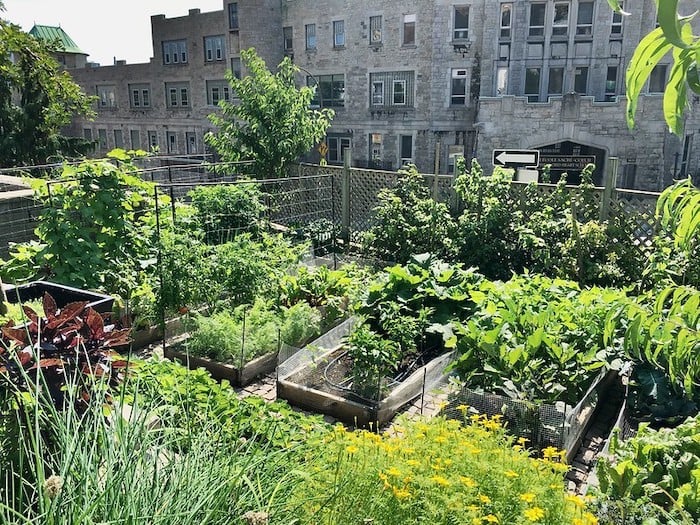
Winterizing your Detroit garden doesn’t have to be a solo affair. It can be a lot of work, so get some help. Invite your children to help pull weeds or clean gardening tools before you put away that gear for the winter.
Bonus points: Getting your little ones to help can instill an interest in gardening from a young age.
If your winterizing tasks will be done at one of Detroit’s community gardens, you may get help from friends and strangers. Winterizing gardens is sometimes a community affair (while practicing social distancing, of course).
Wherever you garden (at home or as a community), the whole point is to find a few more hands — if you can — to help with the winterizing handiwork.
2. Decide when to harvest
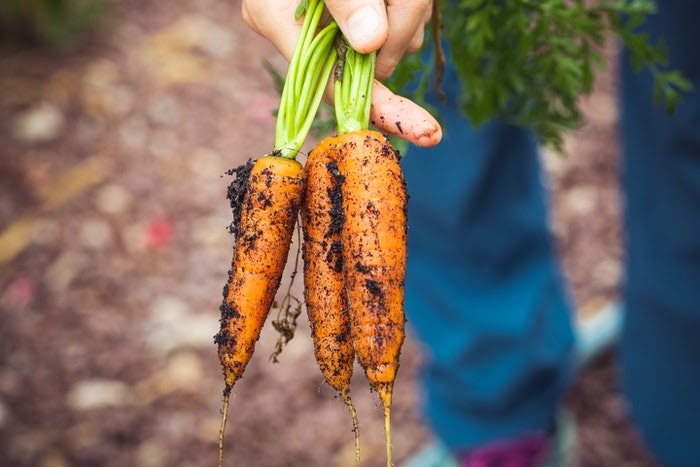
Detroit’s growing season is long enough for many warm-season vegetables, but the growing season is slightly shorter here up North.
For example, in USDA Hardiness Zone 6, the average last frost date ranges from April 1st to April 30th, while the average first frost date ranges from October 1st to 31st.
Keep in mind these dates are estimates and will change year to year.
Some Detroit gardeners may want to increase their growing season by delaying their harvest. But you are gambling by putting off reaping what you’ve sown.
The reason a delayed harvest may turn out to be a bad bet: A frost can destroy many vegetables that you could have harvested.
For example, according to the Michigan State University Extension, some vegetables, such as tomatoes, may lose their quality after a light frost.
But… a frost also can make some vegetables taste even better. Greens like kale, swiss chard, and collards can become a bit sweeter after a light frost.
Note that crops below the soil’s surface aren’t affected by frost, but they are affected by freezing. You can delay harvesting your carrots, beets, parsnips, and rutabagas as these vegetables can survive a frost and remain in good condition.
Just remember that you’ll need to harvest these root vegetables before the ground freezes.
3. Remove annual flowers and vegetables
Annual flowers and vegetables won’t be returning on their own next spring. Annual vegetables like tomatoes and radishes will need to be replanted, and your marigolds won’t pop back up in the spring either.
Since annual plants have only one growing season, remove these flowers and vegetables from your garden as soon as they’re spent. Don’t let your annuals decompose in the soil, as this can lead to garden pests and diseases overwintering in your garden debris.
4. Pull the weeds
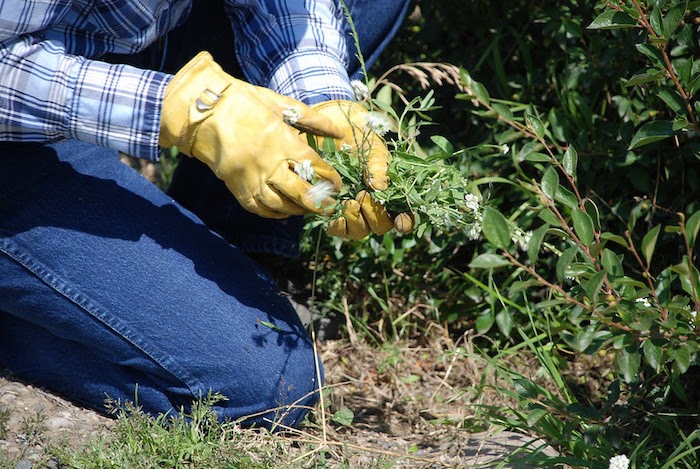
We know you’d rather be enjoying a bike ride on the Detroit Riverwalk or visiting the Great Lakes with friends than pulling weeds all afternoon, but bacteria and pests can overwinter in your weeds.
So pull up those weeds, clean up the debris, and your garden will spring forth with healthy plants when the temperatures warm up again.
5. Bring your tender plants indoors
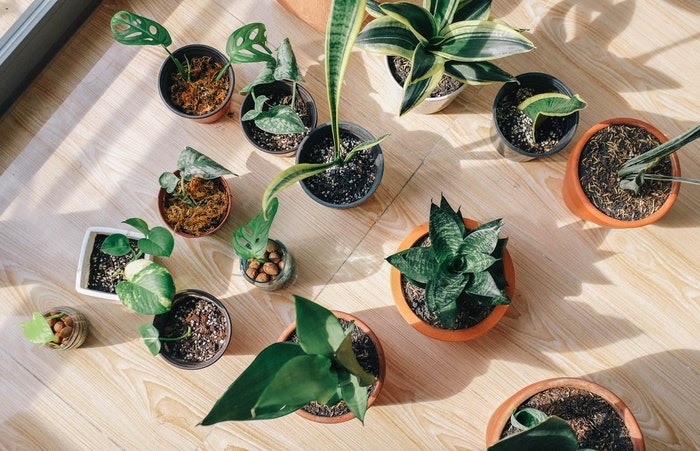
Cold weather is coming, so protect your healthy, outdoor plants. Winter hardiness levels vary among plants. Some plants can withstand a drop in temperatures better than others. Here in Zone 6, the minimum average temperatures range between -10 and 0 degrees.
Your most vulnerable plants will usually include tropicals, succulents, potted flowers, and tender bulbs. A frost or sudden drop in temperatures can easily shock and kill these tender plants, so bring them inside as houseplants. Bringing inside the added color and life is seen by many as a home improvement during the winter months.
To protect vulnerable bulbs from frost, dig them up from the ground and dry them (storing moist bulbs may lead to rot). Dry the bulbs on trays in the garage or tool shed before temperatures start getting too cold at night, and then store them in mesh bags.
Add several sheets of paper between the bulbs to help absorb excess moisture.
6. Divide the perennials
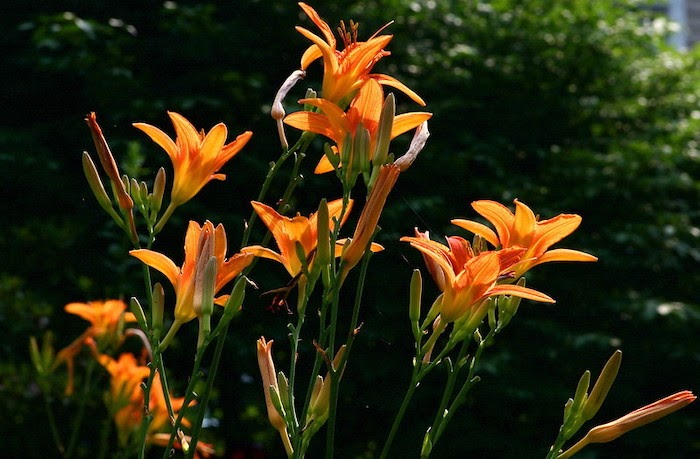
Are your perennials growing too close together? Bunched plants can cause your flowers to compete for air, space, and nutrients.
How to keep your perennials from growing on top of one another:
- Gently dig up the parent bulb and remove loose dirt around the roots.
- Divide the plants by teasing apart the roots by hand.
- If the roots are difficult to separate, cut them with a sharp knife or split them apart with two forks.
Ensure your divisions have an ample amount of roots before planting them back in your flower bed. The end result: Next growing season, your flower beds will likely appear fuller and more spread out.
7. Transition to the greenhouse
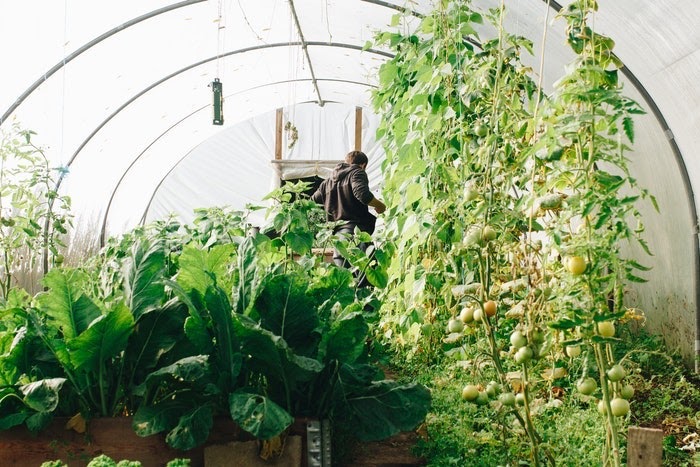
Winter may come early in Detroit, but you needn’t let it affect your growing season. Carry on the plant party with a greenhouse.
A greenhouse allows you to regulate the climate conditions for your growing garden. While it may be freezing outdoors, your greenhouse can provide the right growing conditions all year round.
Greenhouses range in size from small sheds to large buildings. If you want to go really small, opt for a mini-greenhouse or cold frame.
8. Cull the compost pile
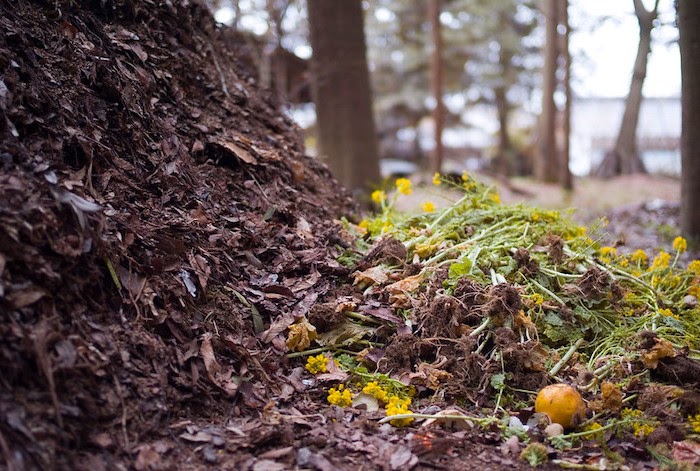
Whether you’re an urban or suburban gardener, your winterizing checklist includes tackling your compost pile (if you have one).
Here’s what to do: Now that summer’s heat has passed, your compost pile ought to be overflowing with decomposed, nutrient-rich material baked by the hot sun.
Spread the compost over your flower beds and vegetable gardens. The compost will give your plants a booster of replenishing nutrients that will help them thrive in the next growing season.
Gather up the fallen leaves and holiday scraps to throw onto the compost pile now that it has some free space.
9. Insulate with mulch
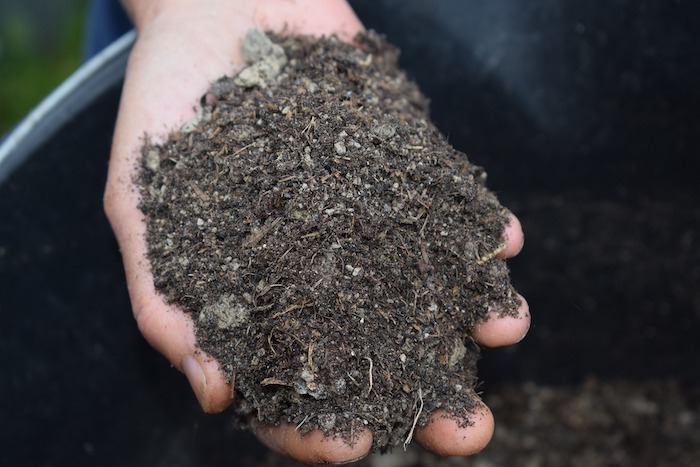
Mulch doesn’t keep your plants warm underground, it helps keep them cold. A layer of mulch creates an insulation barrier that separates the soil from the air, keeping the soil’s temperature consistent through the winter months.
Why this matters: If the soil isn’t a consistently cold temperature, some of your perennial plants may begin to grow prematurely during a warm spell. When temperatures keep rising and falling, your plants may experience an unhealthy cycle of freezing and thawing.
Organic mulch, like wood chips or shredded mulch, also can help retain moisture, control weeds, and add organic matter to the soil (which helps your plants). A 2- to 3-inch thick layer of mulch ought to keep your garden well protected and give your plants plenty of beneficial nutrients.
10. Shut off the irrigation system
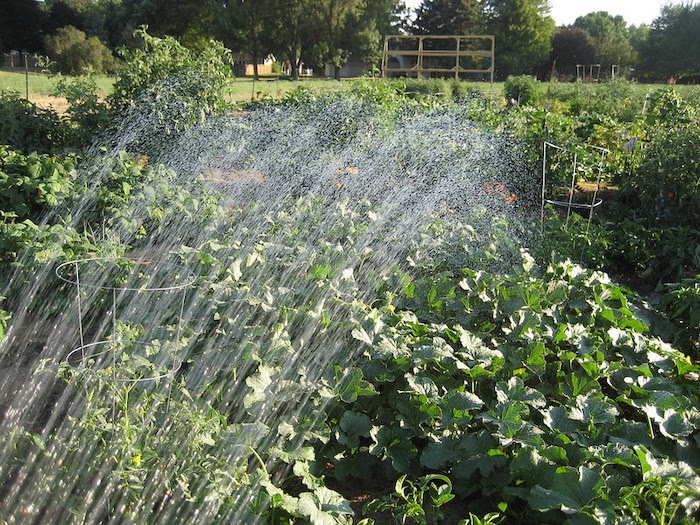
No one wants frozen pipes for the holidays. Shut off the irrigation system before temperatures drop below freezing.
Why you don’t want to forget to do this: Frozen pipes often lead to significant damage and costly repairs (and less money for holiday shopping).
Other water features on your winterizing checklist include your garden pond or water garden. With these, you’ll need to consider the needs of your aquatic life.
Here’s the issue: Removing the pump can prevent the pump from freezing, but the lack of moving water may result in ice, which isn’t good for the garden’s aquatic life.
If you choose to keep your pond pump on through winter, perform routine maintenance to ensure it doesn’t freeze. You might even want to speak with a professional to help determine the best cold weather strategy for your garden pond or water garden.
11. Cover vulnerable plants
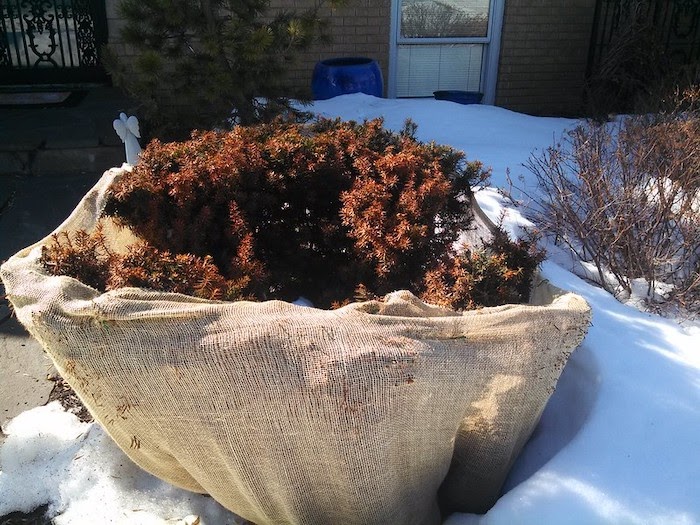
Establishing new shrubs or small trees? When weather forecasts include a temporary freeze, cover these growing plants with burlap, landscape fabric, or blankets to keep them warm.
Your woody plants may look tough, but harsh winter winds can cause dryness, winter burn, or stress.
Even your perennial flowers can use some protection from heavy snowfalls and frosts. Cover the flower beds with tablecloths, bed sheets, or landscape fabric to help protect them.
When the threat of frost has passed, remove these coverings from your plants to ensure they get needed sunlight and don’t get too warm.
12. Clean your gardening tools
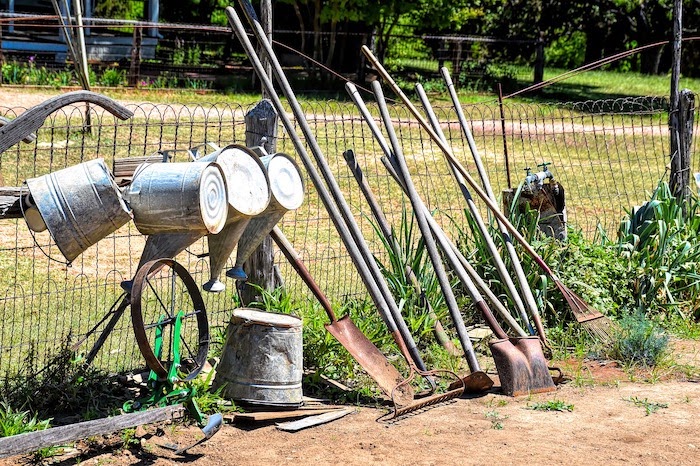
It’s always a good idea to clean your gardening tools regularly, but if you’re putting away your rakes, hoes, and shovels for the winter, it’s smart to scrape off the mud, then wash and dry them.
Why this matters: Tool maintenance is essential for a healthy garden. Dirty tools are a sure way to spread diseases and pests to your vulnerable plants.
Proper maintenance also ensures your tools are sharp, long-lasting, and in good condition to slice through the soil. Keeping them in tip-top shape will make your gardening chores much smoother. (Dull tools aren’t going to make weeding any more fun.)
So no more excuses: Get the hot water running, the soap bubbling, and get your tools squeaky clean.
13. Give your garden a long drink

As your garden goes dormant for the winter, you won’t need to water it as often. But before temperatures drop, your garden is going to need a big drink of water to weather winter.
During winter, give your garden a deep watering a few times a month, as the dry weather may damage the roots.
But remember: Never give your garden a refill when the temperatures are close to freezing. It’s best to water your garden when temperatures are on the warmer end.
14. Review this year’s successes
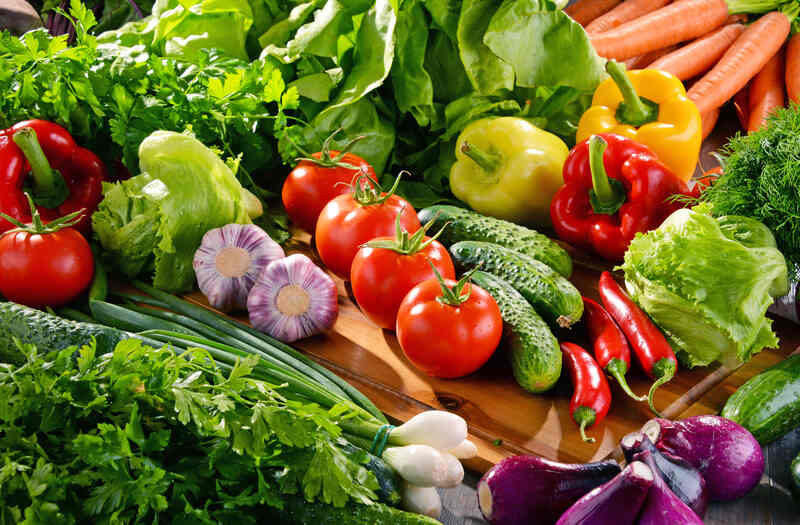
Perhaps the easiest winterizing step is reviewing this year’s success. Which vegetable brought you the best harvest? Which annuals are worth replanting for next year?
Take note if you felt a particular plant required too much maintenance or if one plant had a specific problem with pests.
After revisiting your successes, you’ll know which plants to keep and which to remove. The better you feel about your Detroit garden’s potential, the more you’ll enjoy maintaining it, and the healthier and more beautiful it will be.
When to Call a Professional
If winterizing your Detroit garden isn’t how you want to spend the weekend, call a landscape professional near you to handle the work.
A professional can help winterize the irrigation system, install mulch, and even maintain the landscape through the winter. You’ll likely need to harvest your garden vegetables yourself, but that’s the fun part.
More Detroit Lawn Care and Landscaping Resources:
A Guide to Fall Lawn Care in Detroit
Summer Lawn Care Guide for Detroit
Landscape Improvements to Increase Your Detroit Home’s Resale Value
Main Photo Credit: Ella Olsson / Pexels